Is there a better way to start the month rather than reflecting on the journey of the Data 2030 Summit? The seventh edition of the Data 2030 Summit was an absolute game-changer!
This edition featured practical examples, panel discussions, and peer-to-peer conversations. Additionally, data practitioners from leading Nordic organizations and beyond shared their knowledge and insights.
Join us as we delve into the presentations from the Data 2030 Summit!
Chairperson’s Opening Remarks
Maria Ana Liz, Chairperson of this edition of the Data 2030 Summit and Head of Data & Analytics Self Service at Ericsson discusses the current state of data-driven companies, mentioning that despite having resources and investments, many companies still face challenges such as siloed views, compliance-led approaches, and insufficient understanding of data quality. Maria emphasizes the shift from a cost-driven approach to a value-driven perspective, highlighting the importance of speed and transparency in data management.
She also talks about the balance between democratizing data and ensuring proper governance to prevent misuse. She mentions the role of leadership and culture in driving data strategy and the importance of focusing on the value generated by data. The audience is encouraged to be open to taking risks and learning from failures, emphasizing that continuous improvement is preferable to delayed perfection.
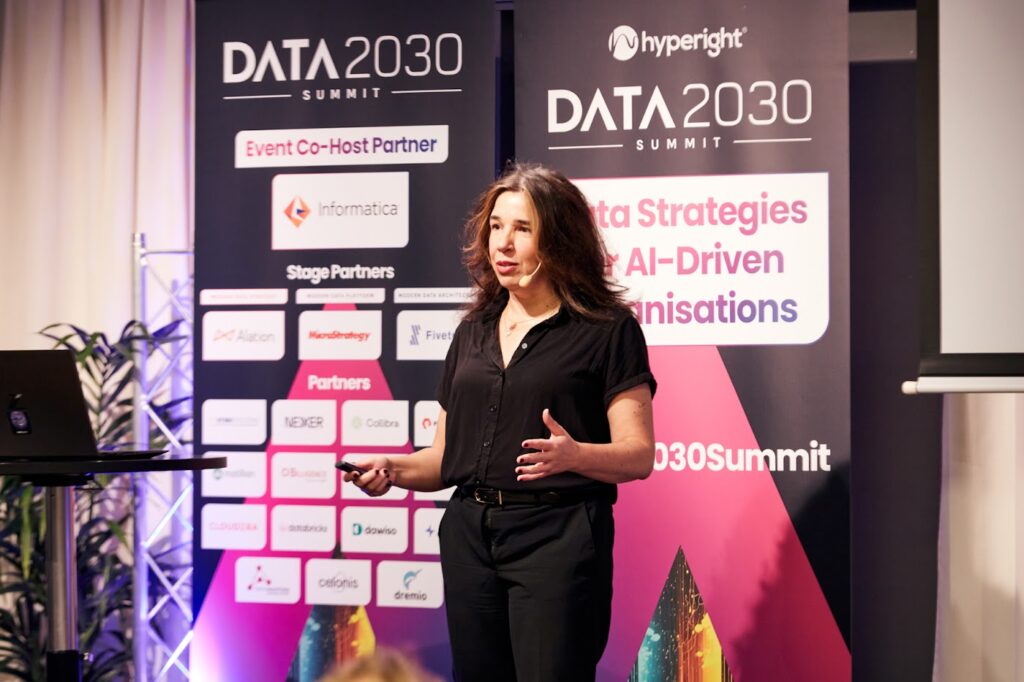

Four Keynote Speakers
Dr. Alexander Borek, Director of Data Analytics at Zalando, poses the question, “Where are we in 2023?” The data management landscape has undergone profound transformations, yet some fundamental aspects remain unchanged. “AI has now become accessible to all. However, many organizations are still unable to effectively utilize data for maximizing its value. The truth is that substantial high-quality data is required for AI technology advancements.”, explains Borek. Then, he delves into federated data management throughout Zalando’s journey. He outlines practical strategies, including establishing accountabilities for data domains, identifying datasets within each domain and transforming them into tangible data products.
Greg Hanson, GVP Platform Specialists, EMEA & LATAM at Informatica, in his talk, explores the connection between Data Management and Artificial Intelligence. Additionally, he reveals how AI revolutionizes the data management practices, and how effective data management can, in turn, enhance AI’s capabilities.
Sughra Ratan Mukherjee, Digital Lead, Data & Analytics at Polestar, delves into how the company harnesses data to drive innovation. Then, he highlights strategies that contribute to their data-driven success story. “The goal is to produce sustainable materials and ultimately deliver superior vehicles to our customers. His key takeaway is: “By learning how to use AI to simplify your business, you can make the maximum value out of it.”
Faheem Akram, Group MDM Manager at Volvo Group Digital & IT, shares his insights into the data management and governance journey of Volvo Group Digital & IT. He states, “Learn to use AI as a tool to streamline your business and maximize its value.” He further sheds light on the associated challenges and opportunities. His key takeaway is: “GenAI will evolve as we continue to use it. Even though it’s new, there are many exciting possibilities to discover.”
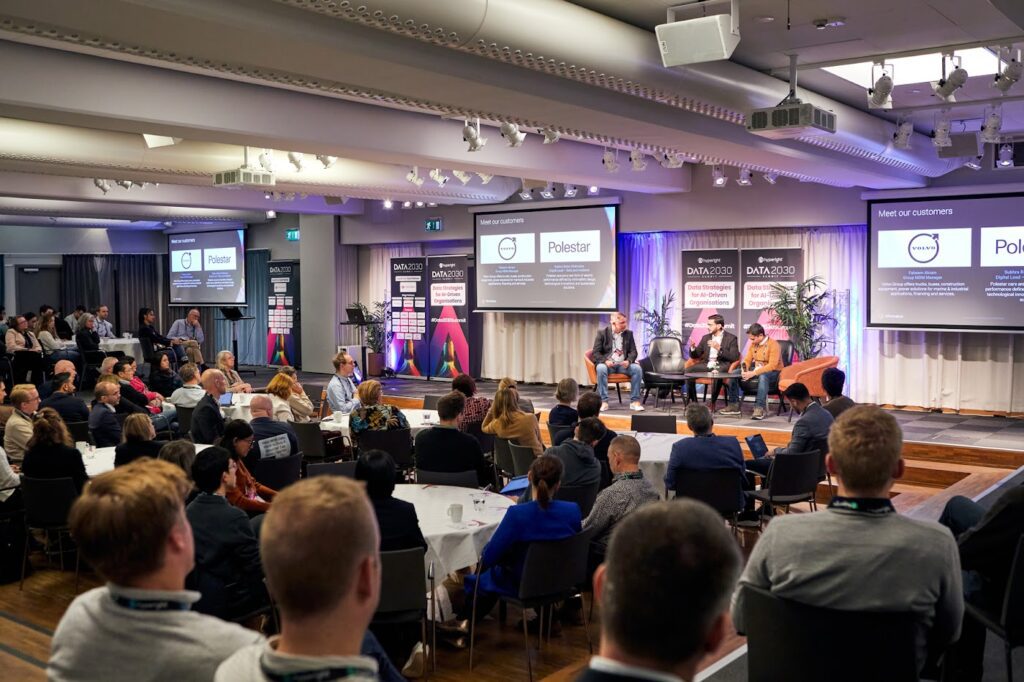

Insights from the Panel Discussion
During the panel “From Data Strategy to Distributed Value Creation”, panelists delve into data governance, leadership, sponsorship, and cultural factors. They explore how organizations can harness these elements to drive effective data strategy management, ultimately unlocking value.
“Data sharing is essential for value creation, but many companies have siloed data stores. Data governance policies and procedures should be designed to support the data strategy and make it easy for people to use data in a responsibly. A data-driven culture is one where everyone in the organization understands the importance of data and how to use it to make better decisions. Data democratization is the goal, where data is accessible to everyone in the organization, regardless of their role or technical expertise.“
Greg Hanson from Informatica, underscores the importance of a robust sponsorship in data management project initiation. Furthermore, he explores strategies for effectively translating data strategy into real-world initiatives. Alwyn Thomas from Financial Times, highlights the significance of organizational culture and leadership. In addition, he emphasizes the importance of fostering a data-centric culture and ensuring that employees have a clear understanding of data integration. Karolina Perzon, during her talk, underscores the role of data governance at Telia Company, noting the need to shift from viewing it as obligatory to a powerful catalyst for accelerating data analytics. Yi Shin Ng, who came all the way from Singapore, states, “Data sharing has always been an issue.” She highlights PETRONAS’s recent data realization movement, aimed at democratizing data access across its vast workforce. “This strategy is a game-changer in the way the company manages its data”, she adds.
The panelists continue to discuss ways for organizations to find the right balance between compliance and democratization in data management. As they wrap up the discussion, they share practical tips on how to measure value effectively.
Round Table Discussions
This edition of the Data 2030 Summit proceeded to a novel standard with its round table discussions. These discussions facilitated delegates in delving deeper into specialized domains, connecting with fellow attendees, and collectively overcoming the challenges they share. Data mesh, data governance, data democratization, self-service analytics, AI for data management, data fabric, data lakehouse, process data, data value delivery, modern data architectures, and self-service AI strategy are some of the essential topics discussed among the participants.
On this edition of the Data 2030 Summit, we had the honor to host Scott Hirleman, Host of Data Mesh Radio and Founder/CEO of Data Mesh Understanding. Scott was conducting a roundtable on Data Mesh Anti-Patterns – The Biggest Data Mesh Pitfalls to Avoid, which was well attended and appreciated by all.


Highlights from the Presentations
Modern Data Strategy Stage
The Modern Data Strategy Stage provides insight into ways organizations can create a future-proof and agile modern data strategy for enterprise grade application of Advanced Analytics and AI, from ownership to implementation.
Alex Astrogold takes you on the data democratization journey of Ericsson Group – Supply, shedding light into the company’s pioneering efforts to democratize data. He details the steps towards elevating the maturity of descriptive analytics, making data primed for advanced analytics across AI use cases. Alexander Grima for GKN Aerospace Engines shares insights on GKN’s transformation journey with AI, emphasizing the need for extensive data. Grima underscores three core takeaways: customer-centric approach, iteration, and trust in communication.
Subhra Ratan Mukherjee from Polestar, shares insights on the company’s commitment to sustainability and how they navigate their efforts through data. The delegates then explore the strategy for securing business support for your data initiatives with Nina Marila from Elisa. She covers the data and AI landscape of Elisa, their data strategy, and ways to educate businesses on understanding your objectives.
Tom Dejonghe from Collibra presents Insights into the revolution of metadata and principles for shaping the future. In his talk, he delves into the evolution of Collibra from a data governance company to a data intelligence company. Additionally, he touches on data products, active metadata, and the rise of AI. Maaret Malinen, together with Tomas Köhlman, share the principles of data management at ICA Sweden. Among the guidelines they share are: defining clear expectations, establishing data ownership, implementing a proactive approach, and defining a value statement.
Modern Data Platform Stage
The Modern Data Platform Stage brings delegates closer to how companies can develop disruptive modern data platform that supports shifting business models, adapt to changing workforce operations, and dynamically and intelligently connects the enterprise.
Faheem Akram from Volvo Group Digital & IT, sheds light on the transformation of Master Data Management (MDM) towards strategic alignment with shifting business models. Valentina Niklasson from Volvo Penta encourages the participants to dare to release the power of data with. She emphasizes the role of people in facilitating a data-driven approach. Additionally, she shares insights on how to onboard individuals in this journey, drawing from Penta’s experiences.
Henri-Francois Chadeisson from MicroStrategy, talks about the efforts and vision of MicroStrategy, and the integration of Gen AI into the analytic field. Varun Jaitly from Cloudera, delves into the topic of fostering trust in AI systems, shedding light on the impact and challenges of Large Language Models (LLMs).
Frederik Gjørup Nielsen delves into Pandora’s data journey, discussing the role of data in its strategy while showcasing key data analytics use cases. He then outlines their data mesh architecture vision and its implementation steps. Mads Hjorth from Danish Ministry of Immigration and Integration, delves into the aspects of massive application and data sharing within government entities. Additionally, he provides insights into minimal cloud experience.
Modern Data Architecture Stage
The Modern Data Architecture Stage brings light on how organizations can architect a blueprint for a data environment that creates, manages and supports data collection, processing, analytical and ML workloads, which also aligns with the enterprise short- and long-term goals.
Mahmoud Yassin from Booking.com explores key elements of data mesh implementation, covering decentralized data ownership, governance models, and scalability. Learn to overcome challenges and see real-world examples of how data mesh can boost agility, scalability, and data democratization. John Thomas from Volvo Cars, delves into data contracts and the data problem space. Furthermore, he delves into the exploration of the root causes behind these issues.
Participants further learn about SEB’s utilization of a data catalogue to improve data management and governance with Diane Reynolds and Markus Buschle. Mathew Cawsey, together with Jesper Leth from Nexer, talk about the role of a data management strategy in shaping a sustainable strategy. They delve into the processes of product information, and talk about the significance of a sustainable profile.
We learn more about Fremtind’s transition from a centralized warehouse to a domain-oriented architecture as Kjetil R. Myrseth provides insights during his talk. Learn more about their strategic shift, its benefits, and the considerations driving this transformation. Richard Brouwer delves into the philosophy of Fivetran: making access to data as simple and reliable as electricity. He underscores the importance of data, noting, “Organizations must respond to business practices and ever-changing environments.”
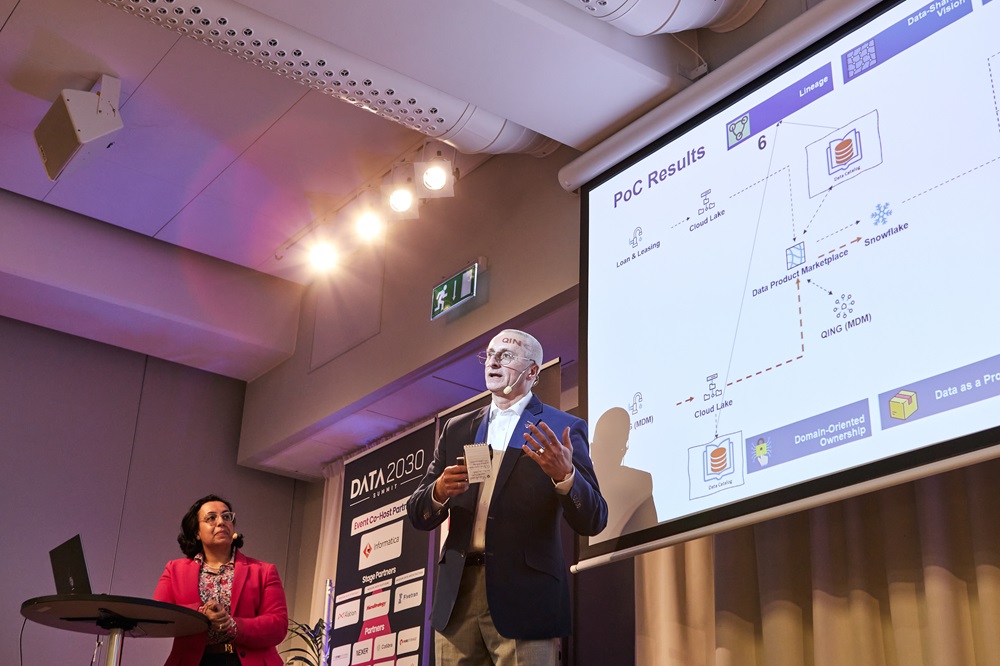

Closing Keynote Speech
We end the intensive program with a keynote session by Yasmine Mohamed – MDM IT Program Manager and Strategist & Robert Ciborowski – QING MDM Product Owner and Master Data Business Program Manager at Scania. Yasmine, along with Robert, speak about how the traditional MDM enables Modern Data Strategy and Data Mesh for distributed value creation. In the presentation they enclose how Scania’s traditional MDM implementation has enabled the company to achieve its data management goals, including creating a 360-degree view of customers, providing data scientists with matched data, and building data products for stakeholders who are not connected to the MDM system. The presentation also discussed a specific data product that was built for one of the business units, and how it has enabled the company to achieve its goals of data as a product, domain-oriented ownership, and data sharing. Finally, the presentation discussed the importance of self-service data platforms, lineage, and data governance in a data mesh environment.
Key Takeaways
The seventh edition of the Data 2030 Summit attracted 300+ attendees at the Birger Jarl Hotel in Stockholm. Our 2023 co-host partner was Informatica, and we were honored to hear their insights and experience throughout their journey.
The event served as a beacon of light, guiding data practitioners through the current hypes and distilling the essence of modern data management strategies that support decentralized value creation from data. The summit illuminated the transformation from cost-centric to value-driven investments and underscored the democratization and accessibility of AI. It highlighted the importance of high-quality data for AI advancements and showcased the synergy between data management and AI. Strategies for data-driven success were explored, emphasizing AI’s role in simplifying business processes. Attendees delved into the challenges and opportunities in data governance, and discussed ways to effectively manage data strategy for distributed value creation. The event also shed light on the persistent issues of data sharing and the push for democratization. Through round table discussions, practitioners navigated specialized domains and emphasized the need for a customer-centric approach in data strategy. Insights into the metadata revolution and the shift towards data intelligence were also shared. The discussions on modern data architecture and data mesh implementation offered a holistic understanding of decentralized data ownership and cross-organizational collaboration. In essence, the summit provided a comprehensive roadmap for navigating the complexities of the data landscape, ensuring that attendees left equipped with knowledge and strategies for the future.
To expand its reach, this hybrid event delivered an online experience through Agorify. You can gain access to the sessions from this event and many more practical case studies on data analytics and AI, by signing up here for a one-year subscription to Hyperight Premium.

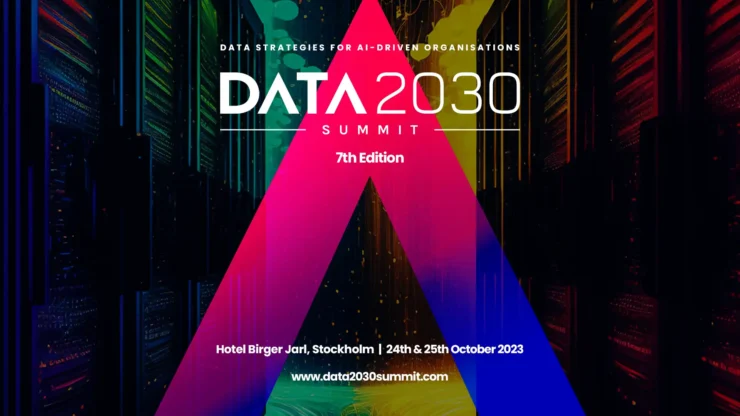
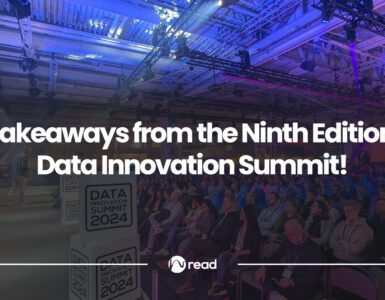

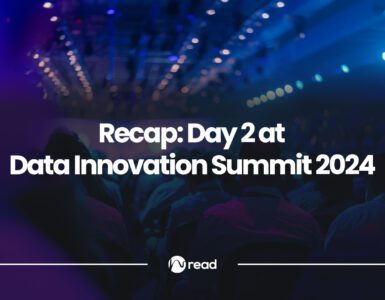











Add comment